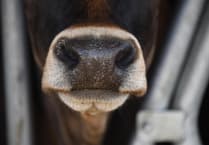Hay Festival has announced that 85 per cent of its waste at this year’s festival was recycled.
The organisers behind the festival have worked with suppliers to reduce the waste produced at the event.
This has been achieved by minimising the use of single-use plastics, placing water refill stations across the site, and introducing reuseable coffee and bar glasses.
As a result, it has reduced its plastics and can waste by 75 per cent
The workplace recycling law, which came into force in April, requires all businesses, organisations, and workplaces across Wales to separate their waste for recycling.

Andy Fryers, Sustainability Director at Hay Festival, said: “Sustainability has always been fundamental to the Hay Festival, both on stage and in its operations. Since 2007, the festival has implemented various programs to reduce its environmental impact, focusing on its own direct impacts, the impacts of its audience, and event programming that provokes discussions on key environmental issues.
“Along with separating recyclable materials on site into different bins we also do a separate check to check the right waste has been put into the right bin. This ensures we capture clean and high-quality recyclable materials resulting in our high recycling rate.
In 2018, Hay Festival introduced reusable hot drinks cups, vastly reducing the waste of the disposable coffee cups. The initiative's success is evidenced by the reduction in waste from 350 full wheelie bins of disposable coffee cups in 2017 to zero bins in 2023 and 2024.
Mr Fryers added: “Replacing single-use coffee cups, bar glasses, and water bottles with reusable alternatives significantly minimised our waste across the site. Since 2018, we’ve provided free water refill stations and a reuse system, leading to a 99 per cent reduction in coffee cup waste and the washing and reuse of over 30,000 cups. This change helped us turn a waste problem into a sustainable solution.”
The festival also installed a cup wash station to promote reuse, recycled over 200 litres of cooking oil and took excess food to local banks, saving over 500 kg of usable food.





Comments
This article has no comments yet. Be the first to leave a comment.